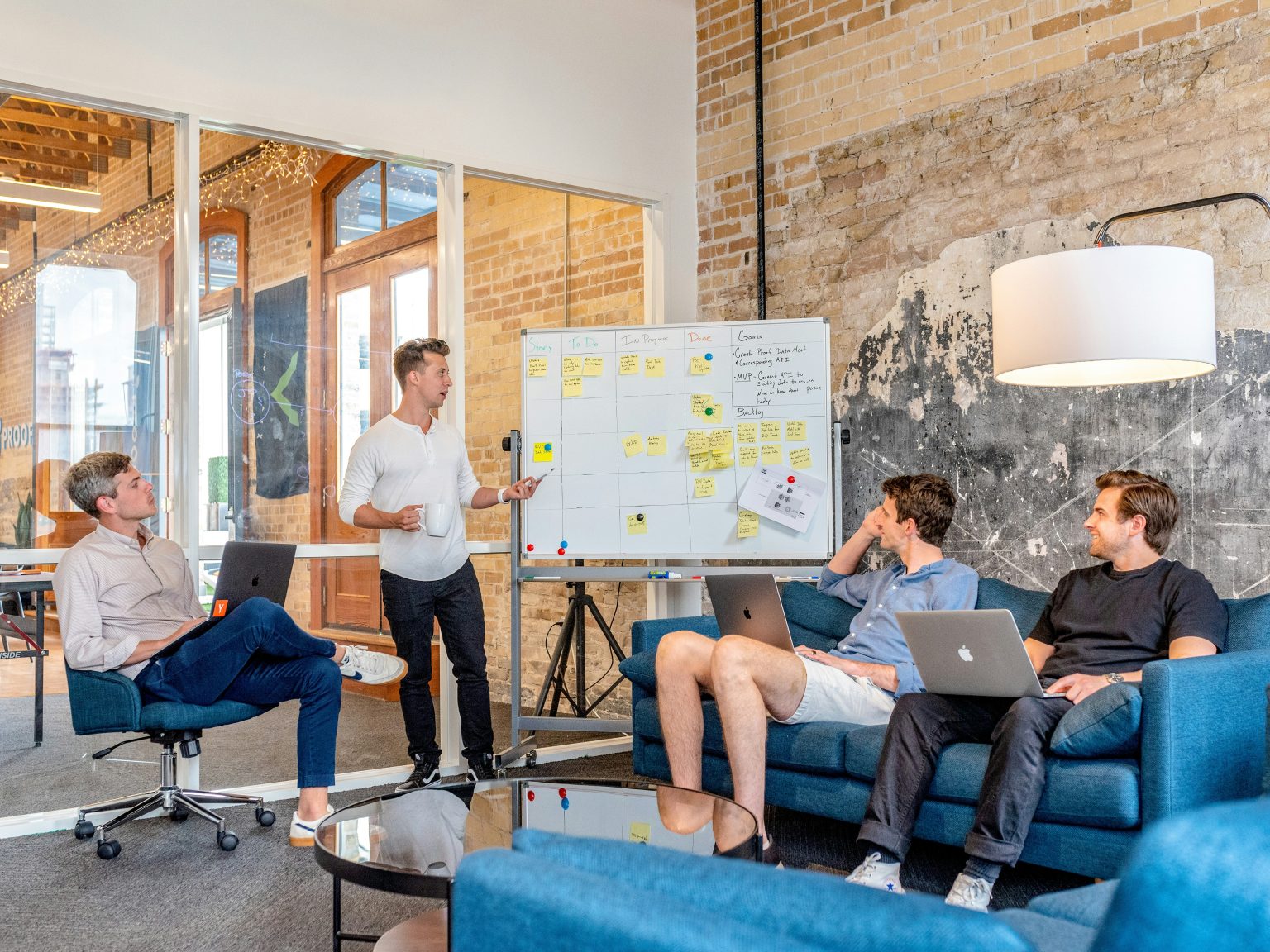

AI
Rivalry intensifies: US government bans AI models developed in China.
What happened: The “No Adversarial AI Act” bill prohibits the use of AI technologies or models endorsed by adversarial nations due to increased security risks and threats to the defense sector.
General implications: AI technology has become a national strategic asset, and this event will trigger an escalation of AI rivalry on a global scale along with revisions to governance norms.
Implications for startups: National vendors receive a major contract opportunity, though the new act forces businesses and agencies to reassess their tech stack and follow stricter transparency standards.
Implications for investing: Ventures will shift from Chinese tech companies to US AI firms, while the investing ecosystem will also see growth in the regulatory-tech sector.
AI’s momentum stumbles: Many agentic AI projects will fail by 2027.
What happened: Analysts at Gartner shared their projections on current autonomous AI projects, where the majority of players are unlikely to succeed in the foreseeable future.
General implications: Businesses face high risks and hold high expectations for the technology, which will lead to a shift from hype to pragmatism in AI strategy.
Implications for startups: Startups in this niche will face higher scrutiny, while founders will avoid a speculative approach and reallocate resources to build AI pilots that align with specific needs.
Implications for investing: It is reasonable to acknowledge that several corporate AI pilots have fallen short, and investors will cut their investments in ambitious projects by favoring only mature ones. Additionally, such projects will face rigorous due diligence to counter the negative effects of hype.
Major financial fallout: Microsoft and OpenAI dispute over AGI control questions their future collaboration.
What happened: Microsoft and OpenAI are renegotiating their multi-billion-dollar agreement due to a vision conflict, with OpenAI insisting on greater autonomy in pursuing AGI development.
General implications: Close collaborations are not a guarantee of successful governance of transformative technologies, which will make tech juggernauts more cautious in strategic decisions regarding such partnerships.
Implications for startups: AI startups may experience increased pressure, as this event highlights the critical role of clarifying governance models before signing partnerships. In the future, businesses will face conflicts over autonomy, resulting in recurring tensions or trade-offs.
Implications for investing: Strategic alignment, autonomy clauses, and long-term ownership will receive special attention from investors. The Microsoft and OpenAI fallout will influence investor attitudes related to vision and control over the development process.
Historical precedent in law: AI startup Anthropic did not violate copyright law by using books from Stanford Libraries for training its model.
What happened: A US federal judge determined that the use of licensed books and published works constituted fair use, indicating the legality of using copyrighted materials for AI model training.
General implications: This is a historical precedent that will favor AI developers in using publicly available written content without licenses. In turn, this court decision will strengthen the position of tech firms in disputes over content ownership and fair use.
Implications for startups: Reduced legal uncertainty will lower barriers and costs for startups while accelerating innovation. However, startups should remain attentive to future trials that may shift the legal landscape.
Implications for investing: It is a promising opportunity for investing in foundational startups with lower legal risk related to training data. The court decision will also boost sector development and valuation in AI.
Underlooked player: Australia’s AI ecosystem is flourishing, providing new business opportunities.
What happened: The Australian government reported that the national AI ecosystem is experiencing tremendous growth, marked by positive changes in the startup, industry, and academic segments.
General implications: Australia’s AI startup ecosystem is rising as a new global competitor, excelling in the domestic sector despite current challenges.
Implications for startups: Business founders can take advantage of the growing ecosystem for AI innovation. A strong local talent pool and new funding programs are major factors securing this growth in the coming years.
Implications for investing: Applications in energy, mining, and healthcare are drawing investor attention in the context of AI adoption in Australia. Government backing will also strengthen this interest by reducing early-stage investment risks.

Startups
Protecting content authenticity: Pangram secures $4 million to develop its AI detector service.
What happened: Pangram is a US-based startup founded by former Tesla and Google engineers, which has raised funds to advance its solutions for protecting education and business settings from an influx of AI-generated content.
General implications: Recent years have seen a negative trend of misusing AI-generated content, especially in educational settings, while businesses continue seeking solutions to diversify their media content by minimizing AI similarity. AI detectors have the potential to become critical infrastructure for launching services that assess content authenticity.
Implications for startups: The AI trust market is highly risky but rewarding, and startups can monetize this opportunity by providing valid detection services. However, the main obstacle remains the struggle with accuracy and scalability due to the dynamic evolution of gen AI capabilities.
Implications for investing: AI applications that address real-world risks generated by AI models may gain investor interest. Digital integrity may also become an impactful commercial trend, drawing more investor attention.
Revolutionizing HR practices: Metaview raises €30.1 million in Series B funding.
What happened: London-based Metaview has secured funding to continue its development of automation solutions for HR practices using AI designed to improve decision-making processes.
General implications: AI tackles the ongoing bias in recruitment and will fundamentally reshape HR in the coming years through structured, data-driven hiring approaches enabled by AI features.
Implications for startups: Vertical AI tools for HR and talent management present a unique business opportunity for emerging AI startups. Moreover, business founders can differentiate their solutions by addressing common issues in management and HR, specifically data ethics.
Implications for investing: AI for enterprise operations will gain investor favor, indicating confident development of HR tech, as startups like Metaview demonstrate clear traction and ROI.
Reshaping manufacturing and heavy industries: PhysicsX receives €117.3 million to continue its engineering efforts.
What happened: UK-based PhysicsX secured a massive investment, allowing the startup to accelerate its R&D efforts in AI applications across various high-tech and heavy manufacturing sectors.
General implications: This event showcases the mainstream status of AI integration in industrial segments, where AI reshapes physical industries by fostering new experimental and innovative designs.
Implications for startups: Technical depth remains an important factor in developing differentiation strategies, as AI adoption in engineering or hardware-heavy verticals offers solid foundations for such startups.
Implications for investing: AI solutions that impact hard infrastructure and manufacturing will secure a leading spot among other niches, with investors showing willingness to inject serious capital.
Machines gain voice: Synthflow raises €17.2 million to implement its AI voice agents in major sectors.
What happened: Synthflow successfully raised funds to build AI-powered voice agents for businesses. Additionally, the secured capital will allow the Berlin-based startup to expand its operations in the US.
General implications: Voice AI remains one of the most successful and applicable technologies utilizing autonomous agents. The case of Synthflow will increase competition to meet current demand for solutions with natural voice capabilities.
Implications for startups: Synthflow’s product design suggests that no-code platforms and cross-language support will become the industry standard for such solutions. However, startups should focus on the practical value of their voice agents to gain market share.
Implications for investing: Despite earlier skepticism, voice tech is attracting VC funds, with large players like Synthflow in high-volume industries receiving the most investment for their ability to automate crucial functions and services.
Breaking through slowdown: Finom closes €115M Series C funding round.
What happened: Amsterdam-based Finom secured funding to scale its operations aimed at providing fintech solutions for SMEs. Moreover, the startup shared its ambitious goal of gaining 1 million active users by 2026, becoming a leading vendor in billing, banking, and invoicing services.
General implications: It is a critical test for fintech startups, as Finom aggressively maintains its market leadership with AI-driven solutions. AI plays a vital role in service survivability while becoming a universal tool for SMEs and startups.
Implications for startups: Small ventures demand automated fintech solutions, which will result in intensified competition and increased entry barriers. It is recommended to focus on minimalist design with automation features to meet the needs of SMEs and emerging businesses.
Implications for investing: AI fintech solutions for SMEs may revive a cooling VC climate. SMEs remain an underserved market niche that can provide excellent investment returns.

Finance
A new wave of early-stage CEE startups: Czech VC firm KAYA announced a new €70 million fund to support new tech talents.
What happened: KAYA VC announced a €70 million fifth fund to support around 25 CEE startups from seed to Series A funding rounds.
General implications: The CEE tech ecosystem demonstrates solid financial performance while enjoying increased global and regional recognition as an influential startup hub. The next 5 years will result in the emergence of promising companies from this ecosystem.
Implications for startups: Founders in CEE will show confidence in building solutions, while favorable scaling conditions and access to talent will positively impact the growth of new startups.
Implications for investing: Investors will increasingly invest in CEE startups due to the region’s maturing stage. This event also signals that the new wave of companies represents a viable frontier.
AI for good: Sweden’s Norrsken Foundation shares a crucial goal to invest capital in climate and health-tech ventures.
What happened: The announced €300 million fund will back European startups that actively design solutions using AI to resolve social challenges. Foodtech and other mission-driven startups have unique opportunities to scale their services.
General implications: Purpose-driven AI shapes a unique market niche that expands AI applications beyond commercial use. In turn, the technology continues to revolutionize stagnant or traditional sectors that fail to keep pace with current digitalization trends.
Implications for startups: Startups will explore new opportunities by designing services and products that create social value. Europe can become a leader in developing such solutions based on AI innovations.
Implications for investing: ESG-aligned outcomes will gain renewed investor interest, potentially driving the AI-for-good niche with increased engagement from VC funds.
Tragic downfall of climate tech: IRA rollback results in massive funding plunges in the US ecosystem.
What happened: A Republican-led House bill continues to have a devastating impact on climate-tech fundraising, forcing large players like Bedrock Materials and Climeworks to shut down their operations.
General implications: The US is becoming a graveyard for promising green tech startups, and investors are shifting their focus to other regions, resulting in major capital migration out of the US.
Implications for startups: Many startups are forced to downsize operations or relocate to other ecosystems to develop their solutions outside the US. Uncertain policy support will sustain this trend despite occasional commercial successes or signs of recovery.
Implications for investing: Investors will redirect capital to more favorable markets for funding green tech companies. It is also reasonable to expect new non-US unicorns in the coming years.
Rise of private capital: BlackRock Asset Management has raised $4.5 billion for a new fund to reinforce decarbonization efforts along with energy transition sectors.
What happened: BlackRock Asset Management plans to lead decarbonization initiatives by launching a dedicated $4.5 billion fund. The fund will target niches such as logistics, utilities, and digital infrastructure.
General implications: This case is essential in indicating large investor confidence in asset-heavy decarbonization infrastructure. Alongside the emerging institutionalization of climate finance, private markets and infrastructure will become core enablers of the energy transition.
Implications for startups: Climate tech startups will shift their focus to infrastructure-focused investors rather than traditional VCs. At the same time, companies should target solutions that connect tech innovation with physical deployment and have a meaningful societal impact.
Implications for investing: Amid the recent decline in the US climate tech ecosystem, private funds will play a crucial role in backing revenue-generating infrastructure solutions. BlackRock’s move also sets a new vision for investors who want to stay in the green tech market despite volatility and uncertainty.
Seed-stage optimism in Europe: Berlin-based Project A closed its fifth fund to invest in seed/pre-seed and deep-tech projects.
What happened: Berlin-based Project A plans to use its funds to invest in up to 20 early-stage European startups. The fund focuses on diverse solutions, ranging from defense tech and fintech to AI and supply chain software.
General implications: This event marks a positive trend indicating investor interest in early-stage startups despite the increasing bifurcation of the market. Moreover, specialized and domain-focused investing is gaining traction, highlighting a positive outlook for the EU early-stage scene.
Implications for startups: European founders still have access to seed capital. Nonetheless, investors are focusing on deep tech and frontier sectors, creating entry challenges due to their complexity and talent requirements.
Implications for investing: Despite gradually declining VC interest in early-stage startups, Europe remains a unique ecosystem producing different outcomes. Confidence in EU talent and leadership will reinforce this positive trend, while defense tech and AI are set to become mainstream niches in the foreseeable future.

Marketing & Sales
Rise of privacy-first search growth: The new search experience driven by new alternatives.
What happened: Privacy-centric search engines are gaining new users by offering solutions that do not compromise privacy and include AI features.
What marketers should know: Specialists should explore SEO diversification strategies by focusing on platforms beyond Google, and branding will play a critical role in withstanding competition. Contextual targeting will be crucial in securing traffic.
Next-gen AI marketing tools: HubSpot solution for CRM and marketing automation gains attention.
What happened: HubSpot has successfully expanded its native integration with OpenAI in the current beta version of its solution. In turn, LLM enables specialists to take advantage of platform features that enhance content generation and data processing.
What marketers should know: AI is becoming standard in martech, and marketers should learn how to use these solutions to preserve brand voice and data integrity, indicating a growing need for upskilling.
TwentyThree Summit 2025: Join the Amazing Video Marketing Conference (Copenhagen, Aug 28–29).
Event description: One of the largest conferences invites guests to participate in workshops and lectures dedicated to video marketing.
What professionals can learn: It is a chance to gain valuable recommendations on video production and sales. Additionally, experts can explore new opportunities to capitalize on video content by leveraging marketing solutions.
Free FAU Webinar: Explore how AI resets traditional marketing (August 12).
Event description: The webinar will introduce new approaches to modernizing marketing strategies in the AI era. Attendees can assess their current approaches to sales, branding, and marketing by identifying weak spots.
What professionals can learn: This lecture introduces essential foundations for AI literacy and upskilling. It is recommended to attend this event to gain the latest perspective on how AI can empower your brand.
Free AMA Webinar: Mastering marketing automation (mid-August).
Event description: This free webinar will equip specialists with strategic recommendations and insights on the current and future landscape of marketing automation.
What professionals can learn: Experts will learn how to optimize budgeting for AI solutions to maximize outcomes. Additionally, it is an excellent opportunity to acquire new knowledge on maintaining operational efficiency in a rapidly evolving environment.




